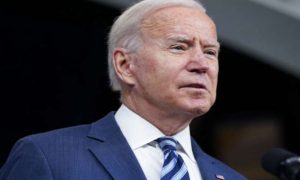Gold. Beef. Timber. Even collagen, the protein derived from cow hides that’s used in some cosmetics and health supplements. All of those products have been traced back to unscrupulous exporters in one of the world’s most threatened and important ecosystems — the Amazon rainforest in Brazil.
Read More:- Best fitness trackers in 2023
Through their purchases, American consumers may be unwittingly paying for deforestation when they buy meat, minerals, and other products from the region. The solution lies in Congress: Lawmakers should approve a bill that would prohibit imports of agricultural goods linked to recent illegal deforestation, such as cattle, soybeans, cocoa, and wood pulp.
And they should act soon because preserving the Amazon has become a matter of international urgency. The forest stores an enormous amount of carbon that would be unleashed into the atmosphere and contribute to climate change if deforestation by farmers, loggers, and miners in Brazil isn’t halted. Last year, the Amazon was estimated to be losing about 60 square miles of rainforest — an area just bigger than the whole city of Boston — per week.
Also Read– Samsung Phones’ Moon Photos Might Be Too Good to Be True
“This is the year we have to save the Amazon,” special climate envoy John Kerry told The Boston Globe earlier this month, a few days before flying to Brazil for meetings with high-level local authorities such as Minister for the Environment and Climate Change Marina Silva.
Funding initiatives like the Amazon Fund, which supports Brazil in fighting deforestation and promoting sustainable development in the forest, is one obvious way to support that goal, and the Biden administration appears to be moving in that direction. After Brazilian President Luiz Inácio Lula da Silva visited President Biden in Washington in February, the White House released a joint statement saying the administration intends to work with Congress “to provide funds for programs to protect and conserve the Brazilian Amazon, including initial support for the Amazon Fund,” without specifying an amount. Three weeks later, Kerry told the local press in Brazil that, other than Congress, the United States could mobilize the private sector to support the Amazon Fund.
Also Read– Astronomers share early images from James Webb’s galaxy survey
But putting money into the Amazon Fund while simultaneously allowing imports linked to deforestation makes little sense.
Kerry said there is potential to strengthen the transparency of the origin of commodities and that holding suppliers accountable “is a fundamental pathway” the United States could develop over the coming months.
Among environmental groups, there is consensus that the best path is legislation first introduced in 2021 by Senator Brian Schatz (D-Hawaii) and Representatives Earl Blumenauer (D-Ore.) and Brian Fitzpatrick (R-Pa.) that would ban imports of many goods linked to deforestation.
“Products of illegal deforestation are everywhere, and consumers are unknowingly and unintentionally driving this destruction. It’s a global problem. We are seeing the EU and others take action, and the [United States] must follow suit. While companies talk a big game on preventing deforestation, we can no longer allow them to police themselves,” Schatz told the Globe. The bill didn’t advance in the last Congress, but Schatz says he plans to reintroduce the legislation.
Also Read- Silicon Valley elites are warring over who does ‘fake work’ in tech
There is international momentum for that kind of ban. In December, the European Union agreed to stop the import of goods linked to recent deforestation around the world; legislation is expected to be finally approved this spring.
“Brazil has three major markets for its commodities: the United States, Europe, and China. If the United States passes a similar and effective regulation, there will be two of Brazil’s economic partners following the same course. This increases the pressure on China in the climate negotiation rounds,” Marcio Astrini, head of the Brazilian environmental protection organization Climate Observatory, told the Globe.
The Amazon stores an amount of carbon equal to decades’ worth of emissions from the United States and China combined and is one of the eight tipping points playing a crucial role in stabilizing Earth’s climate and biodiversity.
Read More:- How to directly sync Apple Watch workouts to Strava
If this is the year to save the Amazon, as Kerry said, the United States should follow Europe’s lead and ensure that companies that want access to the American market aren’t complicit in the destruction of a global ecological treasure.





























